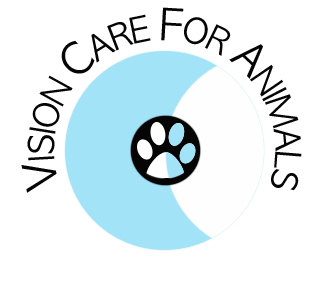Clinical Ophthalmology
We are a full service veterinary ophthalmology practice with an in-house surgical suite, diagnostic laboratory, and pharmacy. Our surgical suite is equipped with state of the art anesthesia monitoring and ventilation equipment, a full compliment of microsurgical operating instruments and current cataract phacoemulsification and laser units.
A complete eye exam starts with a neuro-ophthalmic assessment of the patient, slit lamp biomicroscopy, and indirect ophthalmoscopy.
Additional diagnostics can include
tear testing
staining of the cornea
tonometry
cytology/biopsy
ocular ultrasonography
electroretinography
evaluation of systemic blood pressure
blood tests
We offer the following procedures & surgical service
microsurgery of the cornea & lens
keratectomy & corneal grafting
phacoemulsification for cataract & removal of the lens due to luxation
burr & MSPK procedure for non-healing corneal ulcers (indolent ulcer)
surgical replacement of tear gland prolapse ("cherry eye")
cryotherapy (for removal of abnormal eye lashes (distichia and ectopic cilia) & tumors
CO2 laser for the removal of eyelid tumors without the need for general anesthesia
correction of eyelid abnormalities (entropion, ectropion & eyelid tumors)
glaucoma filtration valves, laser and ciliary body ablation
eye removal if necessary with implantation of either intraocular or intraorbital prosthesis for improved cosmetic outcome
Eye Certification Registry (ECR)
The new ECR is a joint effort between the OFA and the American College of Veterinary Ophthalmologists (ACVO). At the request of an owner, breeder, or veterinarian, we are available to perform this screening eye examination. In addition Dr. McCallum is available to breed organizations for ECR clinics.
Pharmaceutical or Basic Science Research
Dr. McCallum is available for consultation for preclinical drug development. Regulatory requirements dictate drug companies adhere to good laboratory practices (GLP) and/or International Organization for Standardization (ISO) guidelines for conducting preclinical drug development. Veterinary ophthalmologists are in a unique position to provide oversight, guidance and evaluation for such studies.


